Have you noticed how being in certain rooms can make you feel relaxed or happy while being in others makes you feel restless or irritable? The colour of the room may have more to do with your mood than you think. The idea that colour affects your mood goes back a long time: The ancient Egyptians used different coloured rooms to cure ailments. So did the Chinese, at least according to a medical textbook thought to be about 2,000 years old. Modern colour psychology was pioneered by Carl Jung and is widely used in marketing. You can also use it to choose the best paint colour for each room in your home.
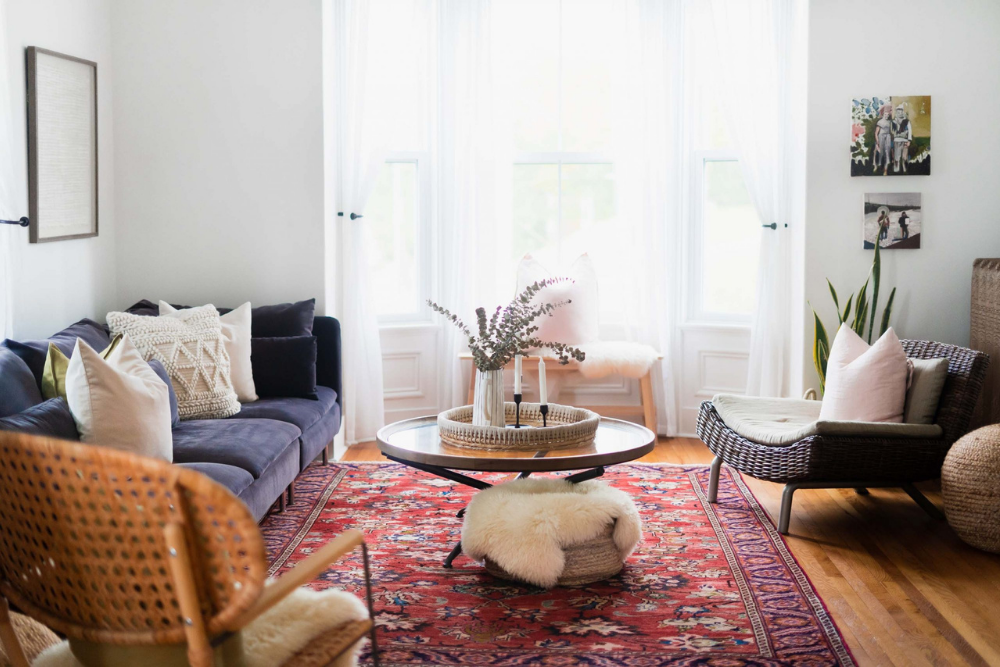
Living Rooms: Neutral Base and Accent Colours
Neutrals promote a feeling of security and are a good choice for a basic colour scheme. Then, add accents in other colours, depending on the mood you want to achieve for the occasion: an accent wall or statement wall art, cushions and throws, rugs or even bright sofas. Red keeps things exciting but too much of it can stir up aggression. Orange and yellow are happy and social and will keep the conversation flowing. Shades of blue and green bring tranquility but to prevent them from calming things down too much, add some warm touches.
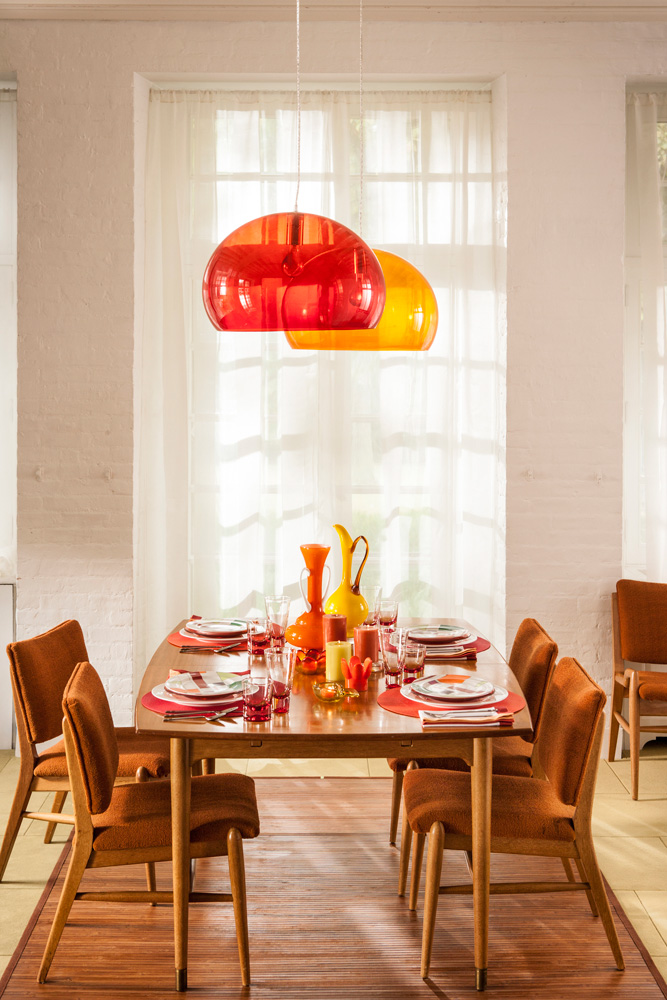
Dining Rooms: Reds and Oranges
Calming blues and greens can also reduce appetite, which is the last thing you want when you’ve gone to all that effort to prepare a scrumptious meal. There’s a good reason why red, yellow and orange are so ubiquitous in fast food chains. They energize and make people feel hungry. Also consider using purplish shades with red undertones: Burgundy or maroon like a glass of good red wine.
Related: 14 Incredible Celebrity Dining Rooms You’ll Want to Have a Feast In
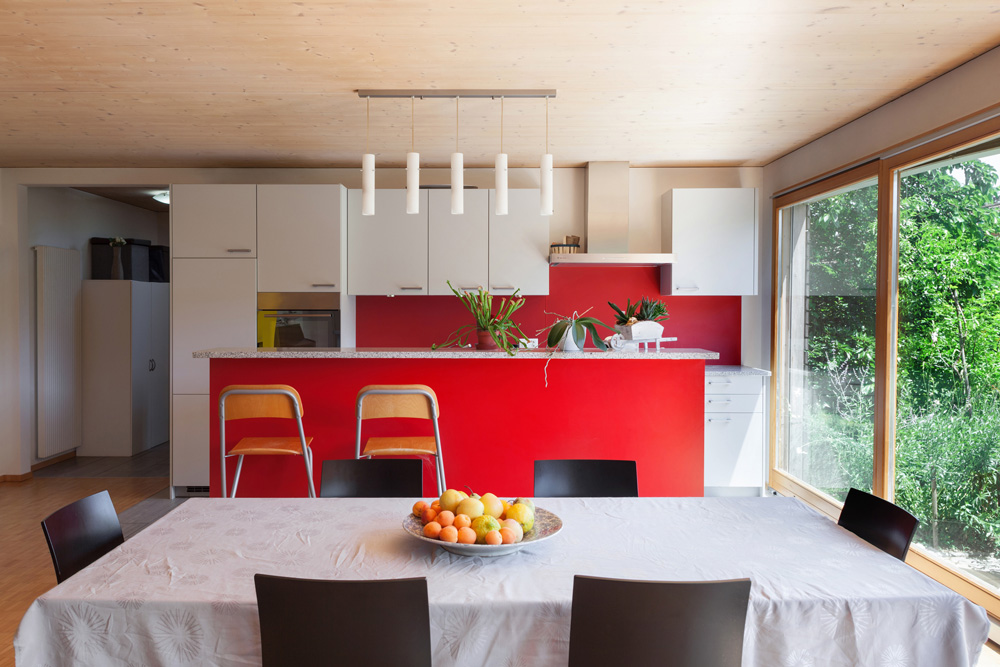
Kitchens: White and Red
White with its associations with cleanliness is an ever-popular colour for the kitchen. At the same time, you also want to lift the energy levels here and infuse personality in the space. You need to be alert when working with sharp knives and hot pans. Red touches can give you that energy boost while stimulating appetite. It also promotes focus and organizational abilities, which will help you to not put beef in the trifle and also comes in handy for creating shopping lists and organizing the bills.
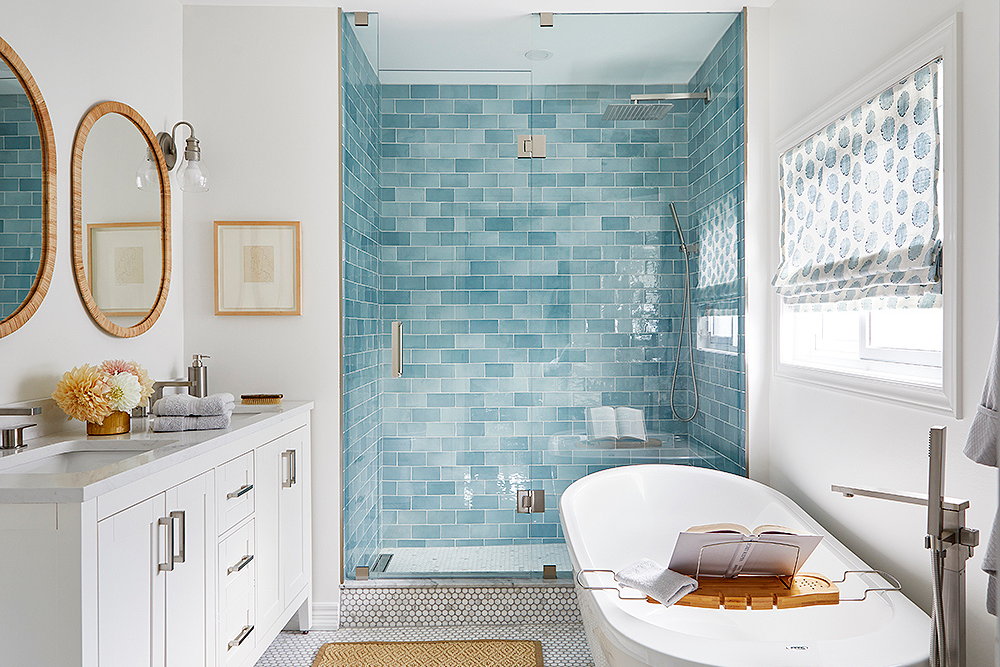
Bathrooms: Use Colour to Create Your Vibe
If you tend to opt for a quick shower to kickstart your day, a sunny yellow will help you feel energized and in a good mood. However, if you prefer to relax with a long soak in the tub, take your cue from maps, where blue indicates water and shades of green indicate vegetation. Turn your bathroom into an oasis of calm with light blues or light greens. Earthy neutrals can make you feel grounded while white denotes cleanliness: Just add some greenery, like humidity-busting house plants.
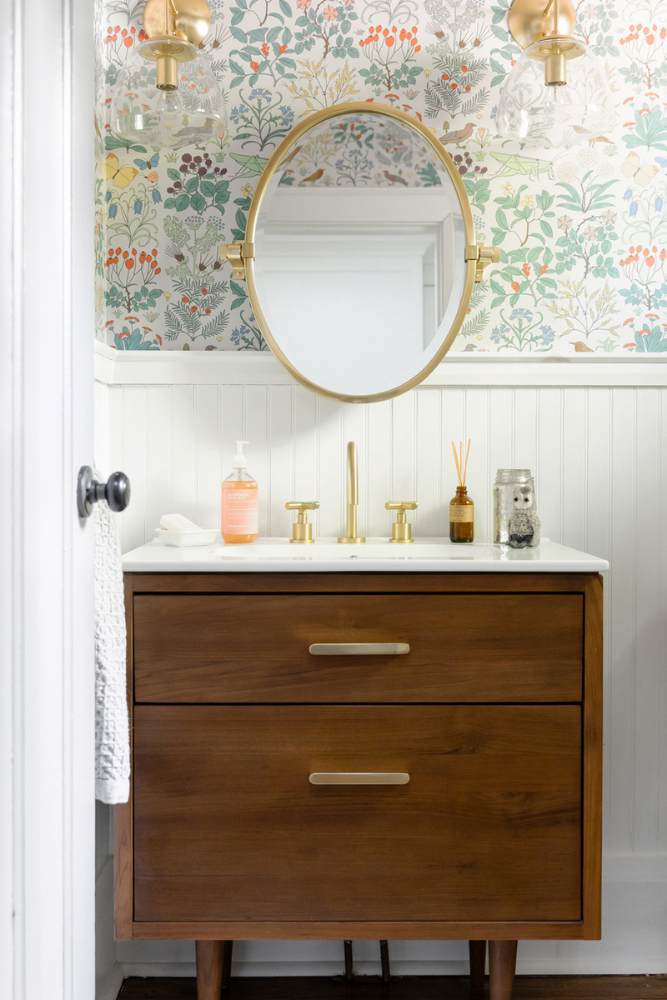
Powder Rooms: Go Bold
White’s association with cleanliness and purity makes it a good choice for a powder room: The last thing you want to think about while in there is all the germs around you. Too much white can be a little clinical, though, as if you’re about to undergo an operation. Because most people don’t spend a lot of time in the powder room, this gives you the freedom to play around with patterns and colours and add some visual interest. This is a great place to go with a colourful print wallpaper to add vibrancy while sticking to white and neutral fixtures to ground the space.
Related: 13 Bathroom Wallpaper Ideas That’ll Inspire You to Go Bright and Bold
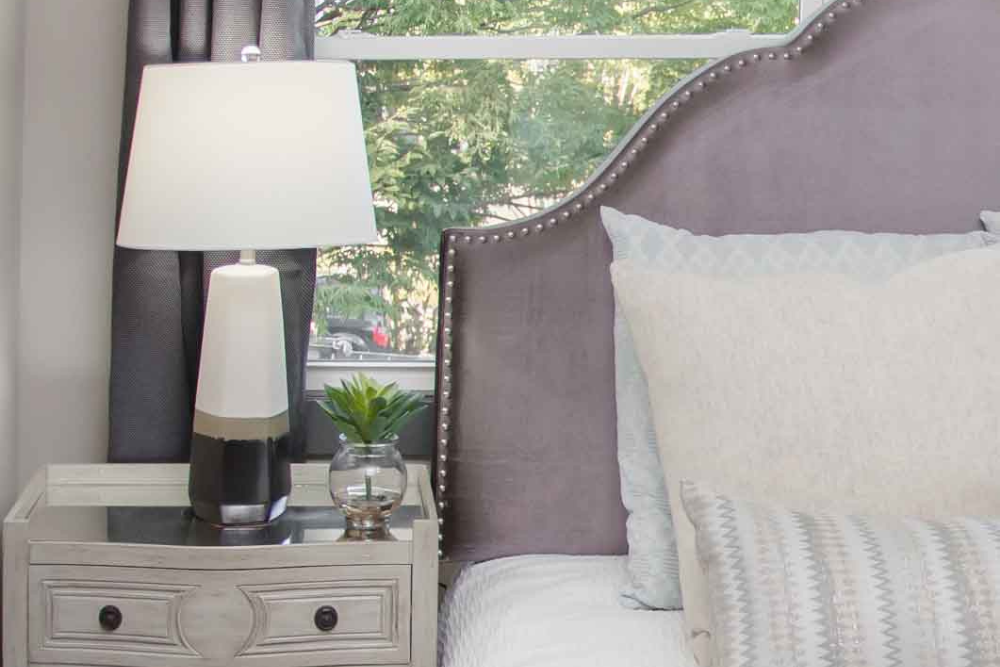
Primary Bedroom: Sleep-Inducing Tones
For the main bedroom, you want to combine tranquility with romance. Blues are calming but may be a little too cool. Red enhances sexual energy but may impair relaxation. Less intense pink promotes feelings of love, but not everyone may want the association with girliness. The perfect compromise is to opt for shades of lavender, light purple or even periwinkle, like Very Peri, the Pantone Colour of 2022. They’re relaxing yet warm and loving.
Related: The Softest and Most Luxurious Sheet Sets at Every Price Point
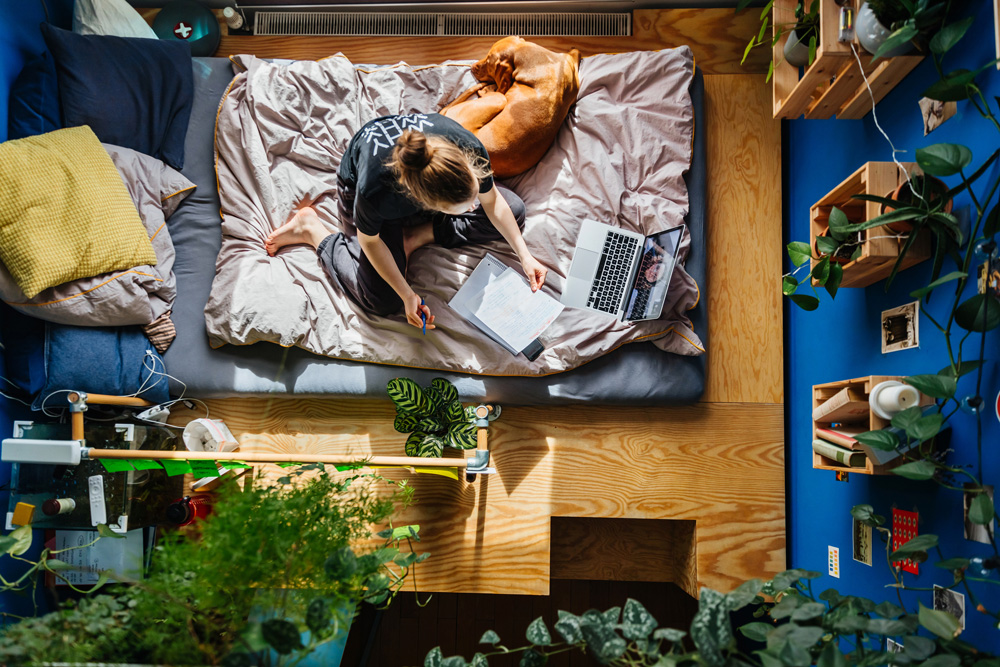
Teens: Promote Relaxation and Add Plants
When it comes to teens, it’s usually best to give them the freedom to paint and decorate their rooms to their heart’s content. At this age, kids are usually growing out of what they liked during childhood and tend to look for more sophisticated colours. For some teens, black seems to be it. However, if you’re not too pleased about having an entire room painted black, try a single black accent wall – it can be incredibly chic if you give it a try. If they still insist on painting their room all one dark colour, cool tones like blue-violet or royal purple promote relaxation. You can also add some plants that enhance sleep.
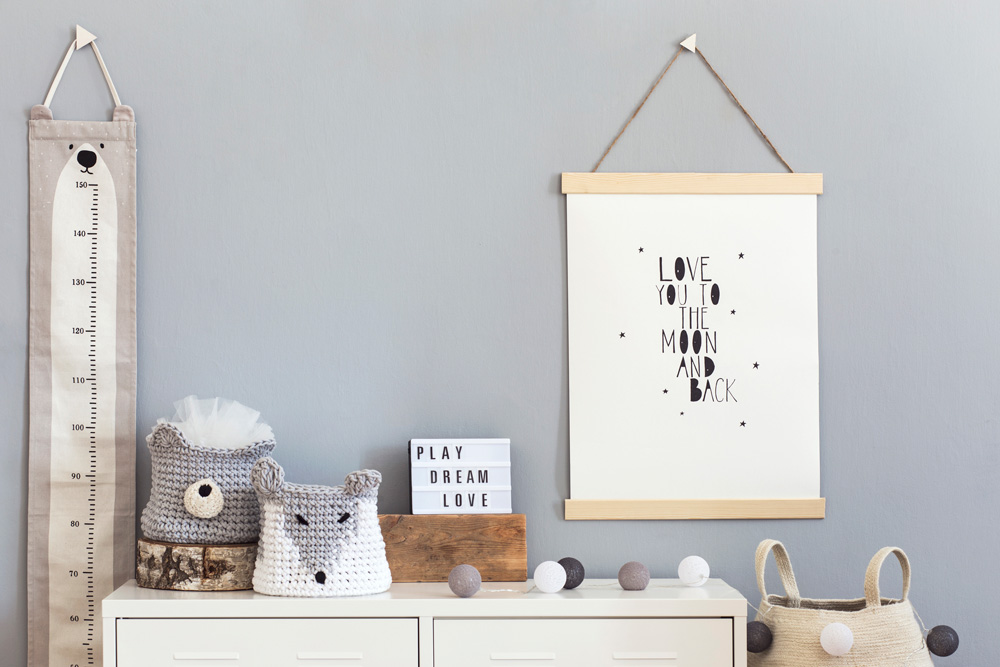
Child’s Room: Soothe With Greens and Greys
Blue and pink are both calming colours, with pink also adding feelings of being nurtured. These colours are still highly gendered, though, and blue can feel a little cold. So how do you compromise? Soft greens are soothing. Soft, light greys are a great option too: They’re a little warmer than green and promote a sense of stability and balance. However, if you’re going with grey or other neutrals, be sure to add accents in other colours. A sea of grey can feel very lonely and isn’t conducive to a young child’s development. Then, swap out these accent colours and decor as your child’s tastes change.
Related: 20 Ultra-Stylish Kids’ Rooms Designed by HGTV Canada Stars
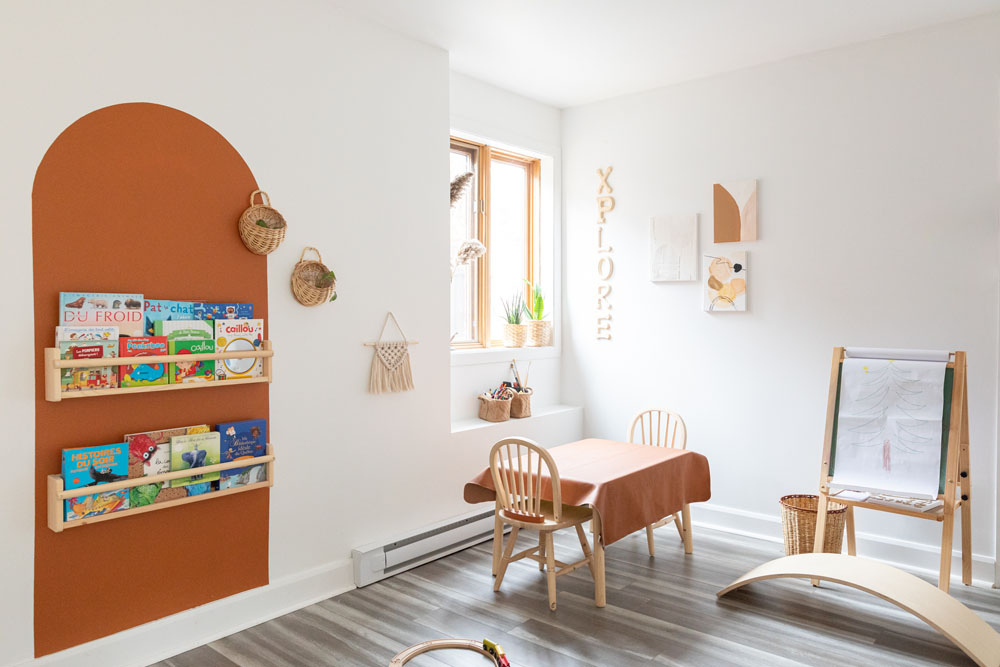
Play Rooms: Warm and Sunny to Boost Creativity
According to Teepee Joy, warm and sunny are the way to go here: Orange promotes communication and socialization while yellow helps with focus. Splashes of red can energize and increase focus too. However, too much of any of these colours can be overwhelming and make some kids irritable. If your little one is easily overwhelmed, temper things with a bright or minty green, which may help with reading ability, and add some smart back-to-school finds to quickly turn the room into an at-home classroom when needed.
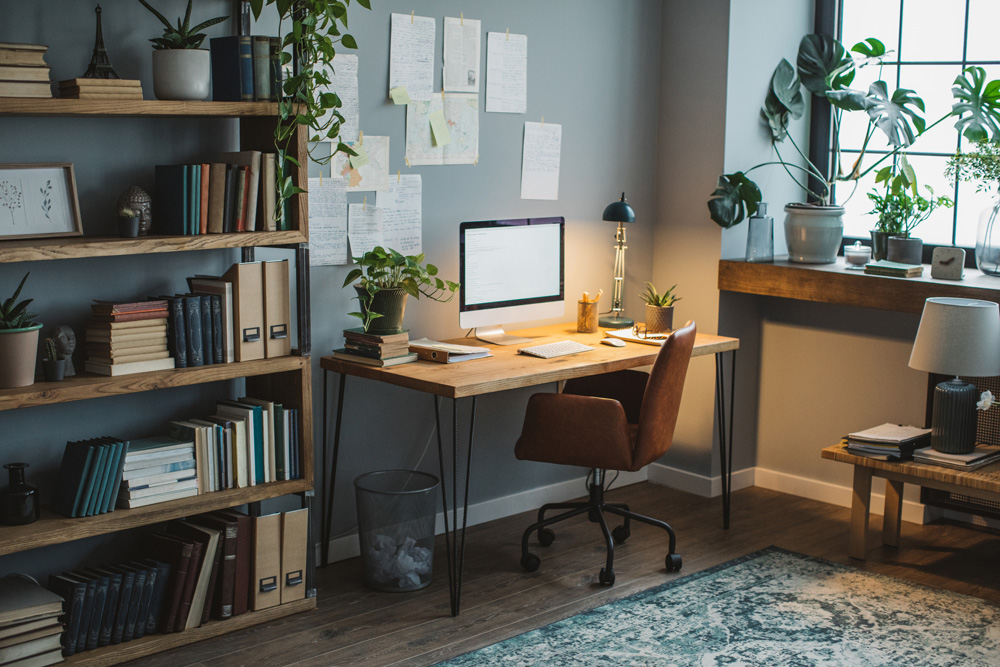
Home Office: Begin With Neutrals
For repetitive tasks, choose light blue, which promotes clear thoughts and reduces mental strain. Red energizes and keeps you mentally alert, yellow improves memory and orange promotes confidence. These three colours also stimulate creativity. To combat fatigue and stress, add some green. Black and brown project power and being in control. But your best bet is to begin with neutrals, and then incorporate the colours you like in the form of accents, or they may overwhelm.
Related: Home Office Essentials for Good Vibes All Workday Long
HGTV your inbox.
By clicking "SIGN UP” you agree to receive emails from HGTV and accept Corus' Terms of Use and Corus' Privacy Policy.





